First Sale Stories: Kelley Armstrong, "Broken," "Bitten," "Stolen," "Dimestore Magic," "Industrial Magic," "Haunted"
Lynda: What is the name of your book?
Kelley: Broken was my next one, so that's the one I'll discuss--being the one I remember the best (getting old, short memory and all that).
Lynda: When will it be published?
Kelley: It'll be out May 1, 2006.
Lynda: Which publishing house?
Kelley: In the US, it's Bantam Spectra (Random House in Canada, Warner Orbit in the UK).
Lynda: What's it about?
Kelley: The blurb I use is: " When half-demon Xavier calls in the favour Elena owes him, it seems easy enough, steal Jack the Ripper's 'From Hell' letter away from a Toronto collector who had himself stolen it from the Ripper evidence boxes. But nothing in the supernatural world is ever as simple as it seems. Elena accidentally triggers a spell placed on the letter, and opens a dimensional portal into Victorian London, releasing zombies, disease, and maybe a notorious serial killer himself." Yeah, I'm not great at "jacket blurbing" my own stuff. The publishers do a better job!
Lynda: What was the inspiration for the book?
Kelley: I knew I wanted to return to my first characters--my werewolves--and my basic plot concept was that my protagonist, Elena, had to return a favour she owed from the series' second book--a favour owed to a half-demon con artist. At the time, I was reading something on Jack the Ripper and the missing From Hell letter and thought "what if that letter really was 'from Hell'." That's not the way the main concept turned out, but it was the inspiration.
Lynda: Is it part of a series?
Kelley: Yes, this is book 6 of my Otherworld series.
Lynda: What do you like most about your main characters?
Kelley: This group of primary characters--my werewolves--are from my first two published novels, so I have a soft spot for them. Werewolves in general are my favourite supernatural type, and I had a blast creating my own "version." Returning to these characters after a three book absence was like visiting old friends.
Lynda: What's your favorite aspect of your book?
Kelley: The characters are always my favourite aspect. Plots can change, but I love working with characters, exploring them and developing them. The plot is the theme park that I put them in, and let them play.
Lynda: How long have you been writing fiction?
Kelley: Since I was old enough to write--and I've been telling stories longer than that.
Lynda: Is this your first paranormal manuscript?
Kelley: This series was my first dip into "paranormal suspense". In my teens, I wrote horror--so I did write werewolves, ghosts, vampires etc, but from a horror angle. When I hit my twenties, I shifted into thrillers--crime, mystery, adventure, suspense. With this series, I found the perfect blend of the two.
Lynda: Is paranormal your main focus?
Kelley: It is. I have a second series starting in late 2006 that'll be non-paranormal suspense, but this remains my main focus. I'm branching out, but not looking to make a complete leap. I'd miss the fantasy elements of paranormals too much!
Lynda: What attracts you about your paranormal characters?
Kelley: I write a variety of supernaturals, and what attracts me to them in general is the opportunity to be creative within a pre-existing framework. When I say "werewolves" most people (well, other than my grandmother) have a general idea what I'm talking about. I can then use that notion and cherry pick from the mythology already out there to come up with my own version. I have much more creative leeway than if I wrote, say, legal thrillers. Yet these creatures are still familiar enough that they don't scare off non-fantasy readers.
Lynda: How long did it take to sell your book, from the time you finished your manuscript?
Kelley: The ones I'm doing now are under contract--I'm contracted up to book 10 with my Otherworld series. So I'll answer this for my first published novel instead. That one took me years to write--I was working full time, raising a family, writing other projects etc--but it was a long haul with an abrupt end. An instructor read it, and recommended it to an agent. I sent it to her. Two weeks later I had an agent. Six week later I had contracts. I know how rare that is (and how fortunate I was) so I'm always quick to say that this wasn't my first novel. I'd tried the querying route with other books and never got back more than a form rejection. When people hear that I sold my first novel so quickly, they have this image of someone waking up one day and saying "Hmmm, maybe I'll write a novel," jotting it down and immediately getting published. Wasn't like that. I had my share of practice novels and rejections!
Lynda: Thinking about the notion of "It's always darkest before the dawn," what was the lowest point in the process for you? Was there a time you almost gave up?
Kelley: Many times. It's insanely frustrating when a writer gets lots of encouragement--from instructors, fellow writers, contest wins etc--but every query letter is met with a "not for us" form rejection. There were many times when I was convinced that everyone who encouraged me was just being nice and couldn't bring themselves to tell me my writing sucked. I had plenty of "that's it--I'm burning the manuscript" moments...during which my husband was always kind enough to not mention the fact that I had computer backups.
Lynda: Did you have an agent when you sold your book?
Kelley: Yep. For me, my agent is a godsend. I'm clueless when it comes to the business end of writing, and I couldn't sell something to save my life. I used to get people coming up to me at signings trying to get me to sell them on my book, and I'd just write down the title and tell them to check it out at the library instead if they were interested.
Lynda: Do you recommend that a pre-published writer focus on finding an agent first, or do you think it's OK to submit directly to the publisher?
Kelley: I always say that it really depends on two things: the writer and the genre. In a genre like this, if you're going for the big houses, you're probably going to need an agent just to get past the doorkeepers, so the question is moot. If you have the option of going it alone, it depends on your personality. If you enjoy the business side and the selling side, then perhaps you'd like to maintain that level of control (and save yourself the 15%). For someone like me, though, I consider 15% a bargain for what my agent provides.
Lynda: You don't have to mention numbers, but did you get a nice advance?
Kelley: Yep, it was nice. Hardly "hey honey, here's a Porsche for Christmas" nice, but by the time I sold my second book, I was able to take the big plunge and write full-time. So long as I make enough to continue writing, I'm happy.
Lynda: What was the process of revisions/rewrites like?
Kelley: With my first book, what I remember best is that the revisions weren't nearly as bad as I'd feared. I'd heard horror stories of editors asking for wholesale changes that completely altered the "feel" of the book, and none of that happened (or has ever happened since). One thing I'd been told, repeatedly, was that--being Canadian--I should expect an editor to insist I make my protagonist American and relocate the parts that take place in Canada. Never happened. Wasn't even an issue. The revisions that I made were all suggestions that I agreed with--either mistakes I'd made or things that, when mentioned, I thought "now why didn't I see that?"
Lynda: If you had an agent, did she/he suggest changes?
Kelley: Yes, and therein lies a tale of extreme embarrassment. The original version of my first novel had large sections set in England. This was a really amateurish mistake on my part. Somehow, I thought that setting it in England would make it more exotic. The fact that I'd never been there...well, that was a minor sticking point. My agent is a transplanted Londoner. So I'm on the phone with her, discussing changes, and she brings up one major problem. "It's set in England." she says, in this crisp British accent, then pauses. "You've never been to England, have you?" I feel like an idiot now, wondering what I was thinking, when I knew full well the old "write what you know" adage. But as a pre-published writer, you're desperate for things that will somehow make your novel stand out.
Lynda: Were the changes something you could live with?
Kelley: Yes. I've never been asked by anyone to make a change I couldn't live with. Even the ones that I disagree with--and don't change--have never been anything I'd have refused to do if pushed. But no one has ever pushed.
Lynda: What was it like, working with the editor at your publishing house?
Kelley: I currently have three editors, because I'm at different houses in the US, Canada and UK. All three editors are great, each with her own strengths.
Lynda: Do you have any words of wisdom for us about revisions/rewriting, etc.?
Kelley: No words of wisdom, I'm afraid. Everyone has their own way of approaching the various aspects of the writing process. What I've found works for me, to keep me out of the endless editing cycle, is a couple of things. First, I usually write the whole thing before I edit. If I decide partway through to make a change, I mark it down and keep going rather than revising it on the spot. Otherwise, I start editing...and stop writing. I also save every version before I edit and every scene I delete. I find it's easier for me to make changes when I know I still have that original or deleted bit, should I change my mind and want it back.
Lynda: Were there any surprises for you about the contract you signed?
Kelley: No. The surprises came with the movie rights contract, which was very funny--laying out how much I'd get for action figures, live musical versions etc.
Lynda: Do you get a lot of help with marketing your book, or do you have to do most of it yourself?
Kelley: Like many new authors, I laboured under the delusion that all I had to do was get the book published, and it would sell itself. My publishers do their bit, but I don't feel I can just say "good enough" and leave it at that. I let them handle advertising, sending out review copies, setting up interviews/signings etc. From my end, I do a few things. One is just making myself available when I'm approached for anything that would be good promotion. Another is my extensive website--I'm a former programmer, so that's easy for me.
Lynda: Did you have input about your cover?
Kelley: Not with the first few. With my first book, I made a comment about the word "spunky" in the jacket copy and, thankfully, got it removed. Since then I've found that if I comment on wording or images, it's addressed and usually changed, but I rarely comment. I consider covers and jacket blurbs a marketing thing, and leave it to the experts.
Lynda: Have you done any events or book signings? If so, what was that like?
Kelley: Done plenty. My first signing? In a local mall...during the Santa Claus parade. The mall was empty. I made two pity sales. The worst thing about signings is when I'm plopped at a table in a mall entrance and people avert their eyes as they pass, as if fearing I'm going to snag them and give them a sales pitch. I feel like I should have a "starving author--please donate" cup in front of me. What I do now is encourage local readers to pop by and chat. If I look busy, people seem more likely to stop...or at least make eye contact.
Lynda: If you could go back and do something differently, what would that be?
Kelley: First book? Too much. Every book, too much. If I had my way, I'd be endlessly tweaking. I've said that the worst punishment I could imagine would be having to listen to the audio version of my first book. I'd be cringing, hearing everything I'd love to rewrite.
Lynda: What would you do exactly the same way?
Kelley: Honestly, while I'd love the chance to tweak my past books, I think if I was seriously given that chance, I'd say to leave them as is. Whatever mistakes I made, they're part of my development and learning as a writer. Weird answer I know--"I'd like to change a lot...but I'd probably end up leaving it the same"!
Lynda: What's your next manuscript about?
Kelley: Right now, I'm doing final edits on my first crime thriller "Exit Strategy." The publisher's "log line" for the series is: An ex-cop turned ethical hitwoman. Not sure any professional killer can be considered ethical, but that's as good a description as any.
Lynda: What's the one book you absolutely must write?
Kelley: I have one planned that I'm looking forward to...but if I said why, I'd be giving away a major spoiler, so I need to keep my mouth shut!
Lynda: What advice are you willing to give to all the pre-published writers out there?
Kelley: Write the story you want to tell. Marketability, originality, it's certainly a factor, but too many writers let it become their main criteria when picking a story idea. Worry instead about writing the story that drives you, the one that holds your interest and your passion. Markets come and go and if you write "to the market," it's liable to have dried up by the time you're done your book. As for originality, once you finally find something no one else has done, you're liable to get halfway through and see a similar basic concept hit the bookstands. Your voice and your handling of that story will be unique. If you want to entertain readers, make sure the book entertains you first!
www.kelleyarmstrong.com
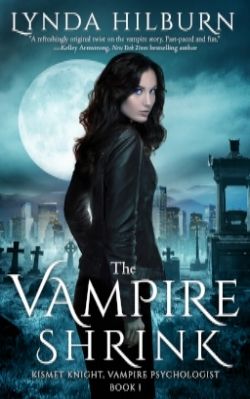
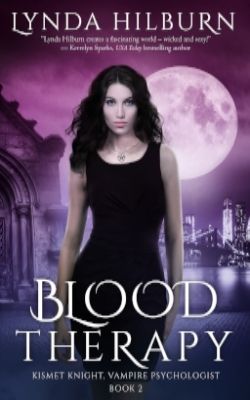
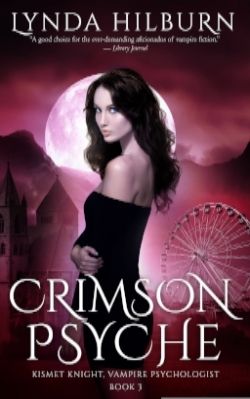
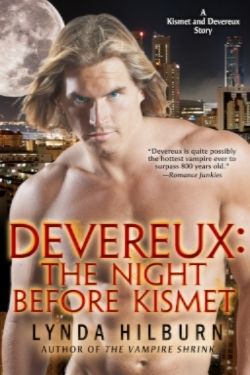

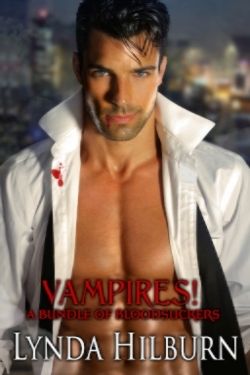
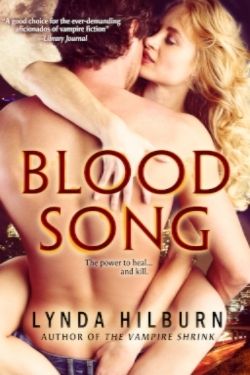
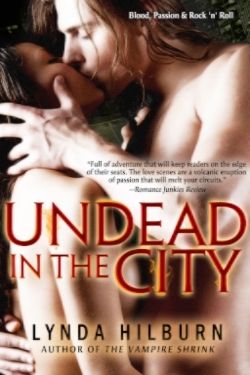
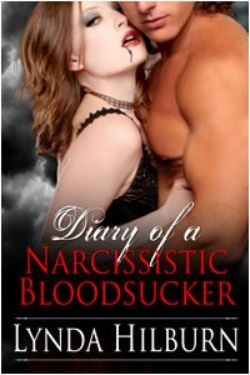
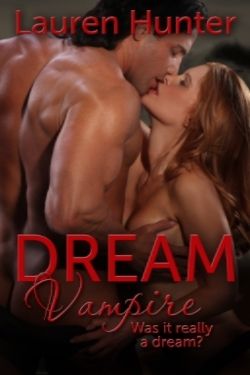
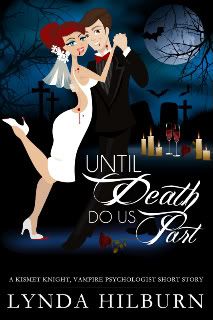
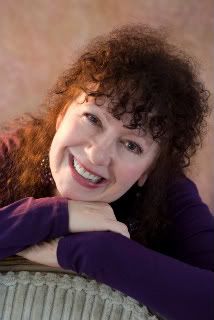
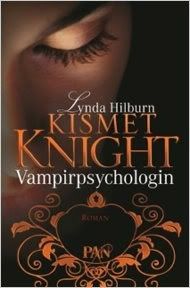
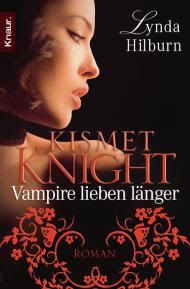
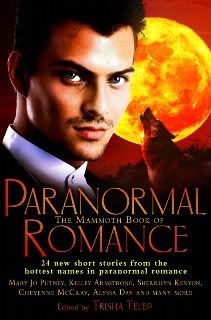
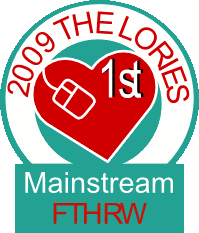




0 Comments:
Post a Comment
<< Home